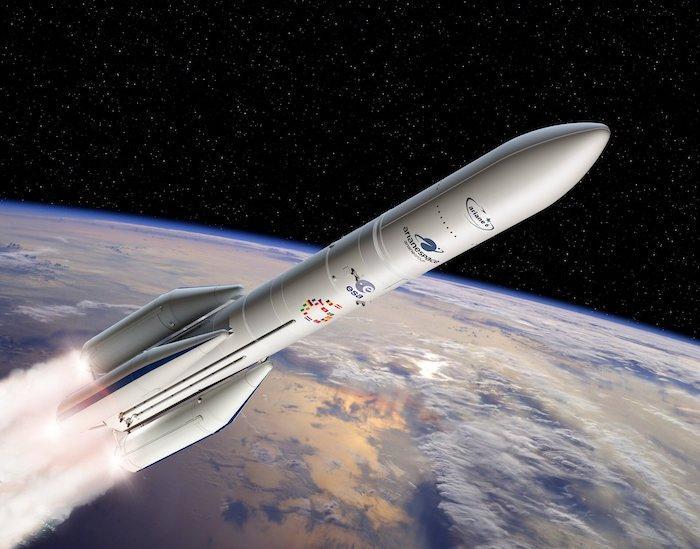
LE BOURGET—The timetable for Ariane 6's inaugural launch is becoming clearer, with the launch vehicle's assembly on the launchpad scheduled for November.
Ariane 6, which has been delayed for three years, is to replace the current heavy-lift Ariane 5 and extend its capacity range to medium-lift—in two versions.
"All is going very well," said Toni Tolker-Nielsen, head of the Ariane 6 program at the European Space Agency (ESA), during a press conference here at the Paris Air Show.
The program is in the last integration stage and moving close to final assembly. The remaining steps toward first flight were detailed during the conference and, for the moment, everything is going according to plan, he says.
So-called combined tests—which involve both a launcher test article and the ground systems at Europe's space port in Kourou, French Guiana—started in May. Flight software qualification tests began in June.
The next milestones are the launch system's qualification review, scheduled for late June, and the upper stage's additional hot firing test in July. On the upper stage, the trials will involve combined tests of the engine and the auxiliary power unit (APU). A notable feature of the Ariane 6, the APU will enable several ignitions to place satellites into different orbits. Finally, launch vehicle assembly on the launchpad is still predicted to start in November 2023, provided everything goes right in the previous steps.
The orderbook is almost full for Ariane 6, with 28 launches contracted. "We have to deliver," says François Barreau, senior vice president for the Ariane business unit at Arianespace. There are a few slots left but Ariane 6 will have to ramp up, with nine to 10 launches a year once the cadence stabilizes, hopefully by 2026.
While ESA is responsible for the first flight as part of the launcher's development, Arianespace will operate Ariane 6 from the second launch, which will be the first commercial one.
With the last Ariane 5 launch due to take place shortly, Ariane 6 is eagerly awaited by customers. Spacecraft such as the French government's CSO-3 military observation satellite, the EU's IRIS2 broadband communications constellation and additional satellites for the EU's Galileo navigation service are considered strategic missions. The EU does not want to delegate them to the U.S., and they have been postponed due to repeated delays in the Ariane 6 program.
